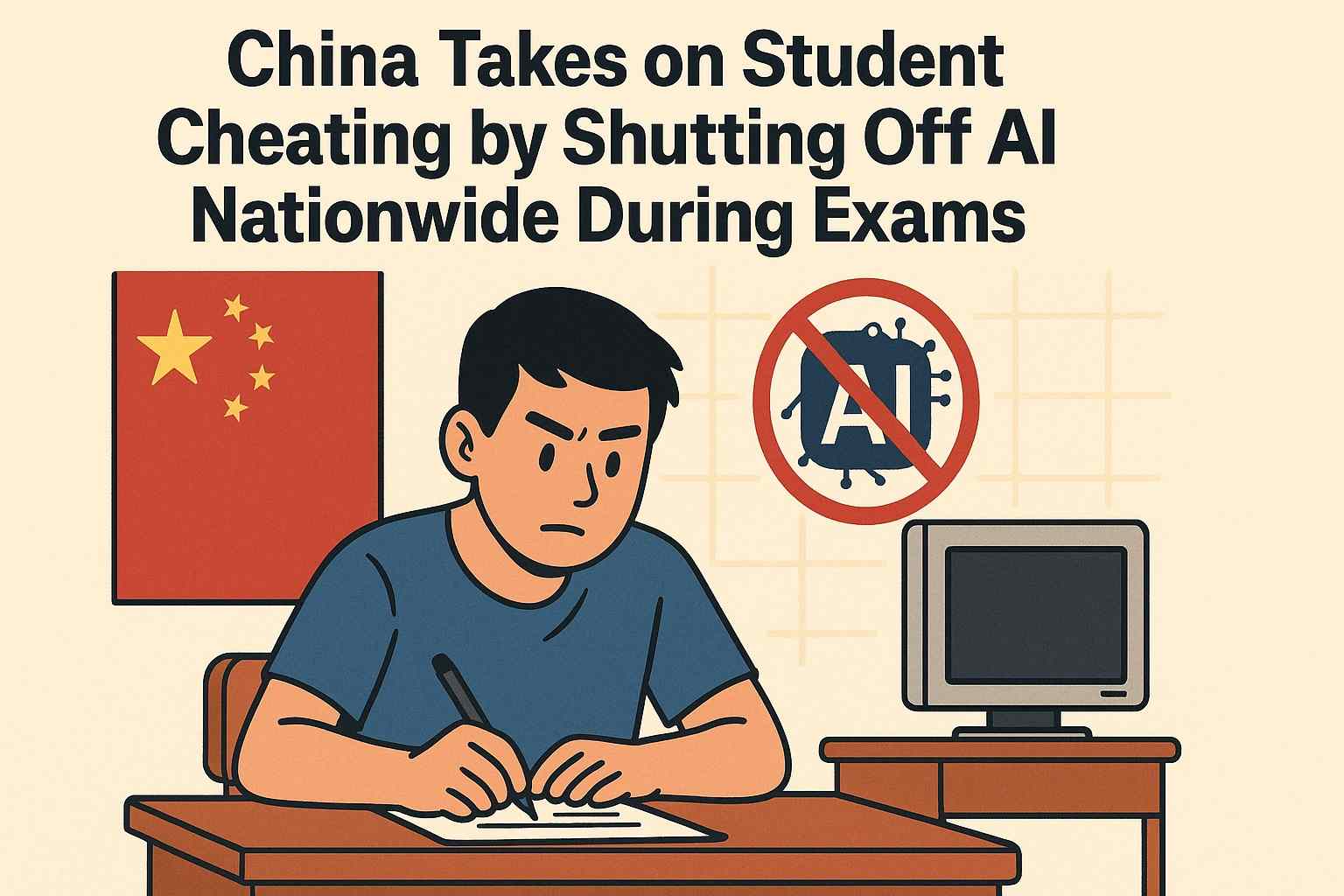China Takes on Student Cheating by Shutting Off AI Nationwide During Exams
In an unprecedented move, China has implemented a nationwide ban on AI services during exam periods to combat the rising issue of student cheating. As artificial intelligence tools become increasingly accessible, concerns have mounted over their potential misuse in academic dishonesty. This bold approach reflects the country’s determination to preserve the integrity of its education system while grappling with the challenges posed by emerging technologies.
The Rise of AI in Education and the Cheating Dilemma
The integration of AI tools into everyday learning has transformed how students approach their studies. From automated essay writing to real-time problem-solving assistants, AI-powered platforms have become valuable educational aids. However, this technological progress also introduces ethical challenges, especially when such tools are exploited to bypass academic efforts.
With AI-generated content becoming difficult to distinguish from human work, educators worldwide face increasing difficulties in ensuring fair assessments. China’s decision to restrict AI access during examinations is a direct response to these challenges, aiming to safeguard academic honesty and the credibility of its educational qualifications.
How China’s Nationwide AI Blackout Works During Exams
According to recent reports, the Chinese government has coordinated with major AI service providers to disable AI functionalities nationwide throughout the duration of critical exam periods. This coordinated shutdown means that popular AI writing assistants, chatbots, and other intelligent tools become inaccessible to students, effectively removing digital avenues for cheating.
This approach extends beyond simply blocking websites; it involves close monitoring of network traffic and cooperation with internet service providers to enforce strict compliance. The enforcement of these restrictions signals China’s commitment to maintaining a level playing field for students across the country.
Global Implications and Challenges of Restricting AI Use
China’s approach invites discussions about the balance between technological innovation and ethical education. While the ban aims to curb dishonest behavior, it also raises questions about access to legitimate AI-based learning aids for students who rely on these tools for study support.
Moreover, implementing such a broad and stringent measure may be challenging in regions lacking the infrastructure for comprehensive monitoring. Other countries are watching closely to see how effective China’s strategy is and whether it will influence global policies on AI in education.
The Future of AI and Academic Integrity
This nationwide AI blackout highlights the urgent need for educational systems to adapt policies and tools that can detect and deter AI-assisted cheating while promoting responsible AI use. The rise of sophisticated AI demands equally advanced solutions, such as AI-driven plagiarism detectors and redesigned assessment methods less vulnerable to automated cheating.
Educational stakeholders must collaborate to develop frameworks that embrace AI’s benefits without compromising academic integrity. For more insights on AI’s evolving role in education, see our recent guide on AI.
Conclusion
China’s decisive action to shut off AI nationwide during exams marks a significant chapter in the ongoing battle against student cheating in the digital age. While the strategy presents logistical and ethical complexities, it underscores the importance of preserving fairness in education amidst rapid technological change. As AI continues to advance, educators and policymakers worldwide must innovate and adapt strategies to uphold the principles of honest learning.
Stay informed about the latest developments in AI and education by subscribing to our blog. Together, we can navigate the intersection of technology and academia responsibly.
📢 Want more insights like this? Explore more trending topics.

